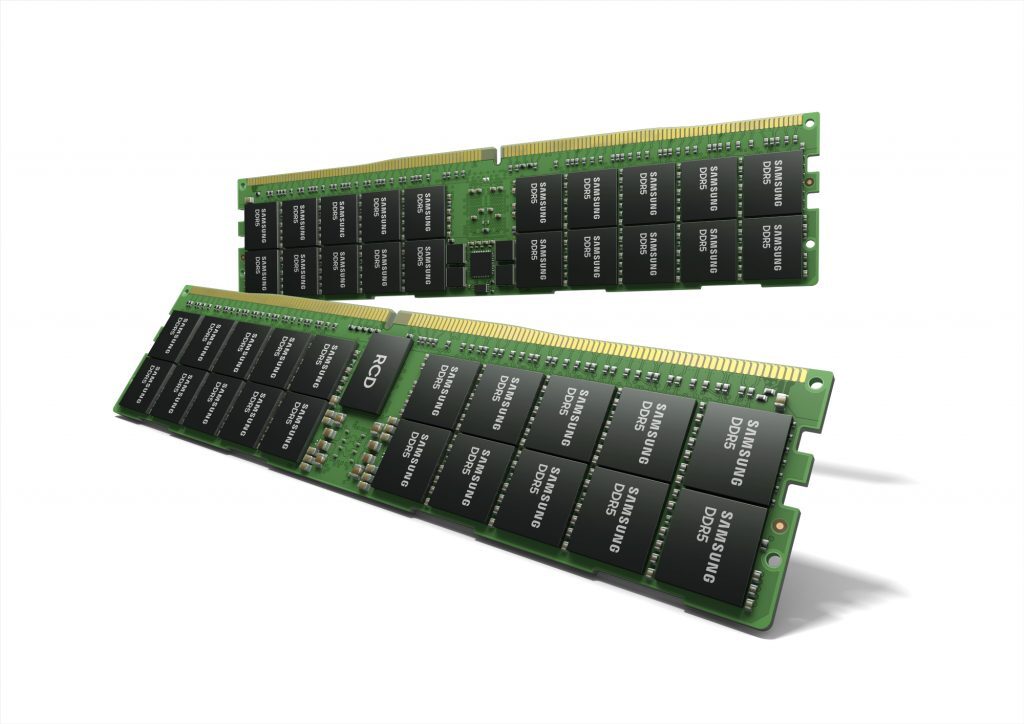So you think your gaming machine is high-end, do you? Samsung has come out with a new RAM module that will make any gaming rig you own look embarrassed about what its packing — the tech company just unveiled a new 512GB DDR5 module.
Now, you might be reading this wrong. We certainly did at first (but that might be age telling on us). It’s not a low-capacity first effort at DDR5 RAM — it’s half a terabyte of DDR5 RAM in a single module, meaning you might one day stick up to 2TB of RAM into your gaming rig.
Samsung’s showing off
But we shudder to think of what a solid 2TB of random access memory will cost you, at least at launch. And this lot is fancier than most, making use of the South Korean giant’s High-K Metal Gate (HKMG) process tech. Samsung says that it doubles the performance of DDR4, running at up to 7,200Mbps.
The company also says that it’s intended for “…orchestrating the most extreme compute-hungry, high-bandwidth workloads in supercomputing, artificial intelligence (AI) and machine learning (ML), as well as data analytics applications.” But we all know that’s a lie — someone’s going want to be the one to stick it into a gaming setup first and we all want to be (or meet) that person.
Samsung’s made large-capacity RAM before — server modules 256GB in size. These new DDR5 units are considerably larger, and faster — the company stacks up eight layers of 16GB DRAM chips to hit the 512GB size found in these modules. The modules are 13% more efficient (than… something. They don’t specify what), according to the company.
But the average desktop PC doesn’t support DDR5 — yet. Don’t count on finding them on sale on Takealot or Matrix Warehouse, is what we’re saying. In fact, don’t count on seeing them anywhere for a while. The humongous RAM modules are currently being sampled by various potential customers ahead of certification. Then, data-centers will see themselves with a shiny new toy to play with. And one day, probably sooner than you’d expect, the commercial space could see the hardware sitting on hard-to-purchase pedestals.



